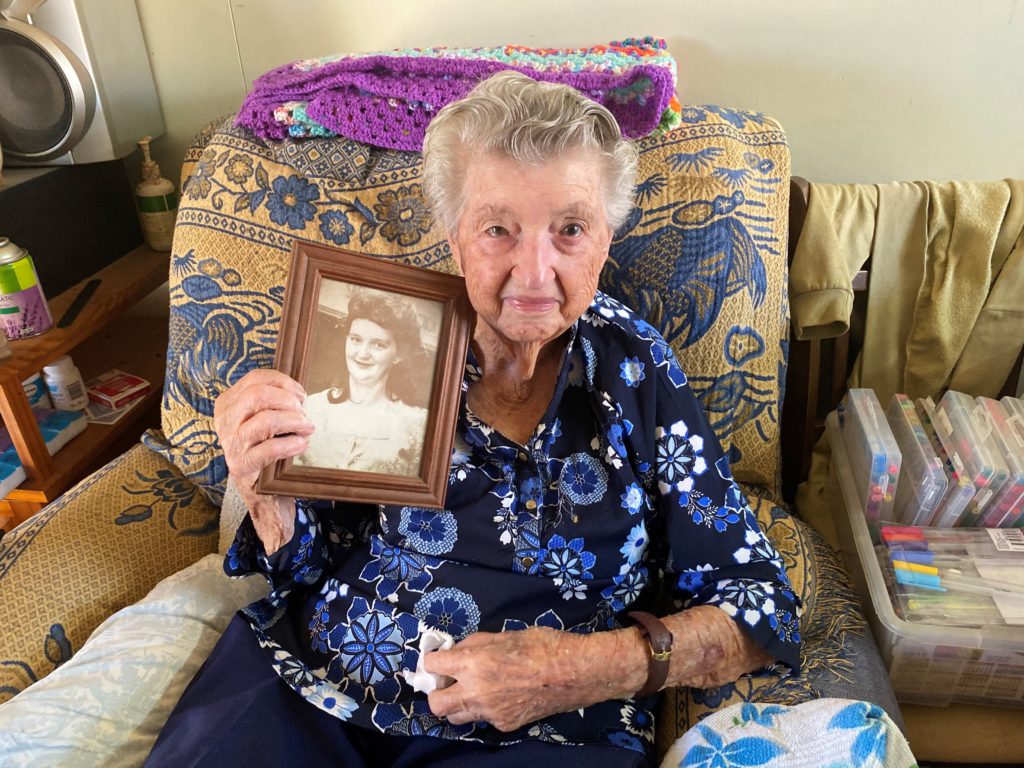
Verlie Foley will soon celebrate her 100th birthday, which means she was born before the Great Depression and even before fridges and toilet paper were commonly used in Australia.
Verlie is a mother-of-four, has 16 grandchildren, 37 great-grandchildren and 39 great-great-grandchildren with four more on the way.
She has passed a lifetime of memories down from one generation to the next and is more than happy to share these now with the Bundaberg community.
Verlie first came to the Bundaberg Region about 60 years ago, when she worked on a fishing trawler and fell in love with the area. She moved to Riverview 43 years ago.
Verlie, 99, now lives at Kepnock with her 80-year-old daughter and carer, Irene Mann, and they both keep up to date with current affairs.
The pair lived through the polio outbreak, during a time when measles was common, as was chicken pox and the mumps.
Neither has an answer for the current global health concerns following the Covid-19 outbreak, but Verlie said if she could, she’d spend her lifetime living through the 1930s even though it was a time of war and depression.
Verlie says the panic buying of toilet paper is “ridiculous” and when she was a child toilet paper wasn’t used in Australia by most families and they would use “whatever” they could find at the time, such as leaves.
“There were no flush toilets, or men coming around to take the toilet drum away once a week, it was a hole in the ground, and later when I had children it was a box with a hole sitting over the top, but before that we went in the bush,” she said.
“Times have changed but there is no need for panic buying, and I hope people realise this.
“We never had anything to fear, we all slept in the same bed and if someone got sick, like aunty Glad who had polio, and we’d put them in the iron lung.
“It was hard, but just the same I think things then were better than they are today, we never went out much, but we made our own fun.”
Growing up without large city centres
Verlie’s earliest memories flow back effortlessly as she recalls an easier way of life, with less stress and less conveniences, growing up at Dorrigo, NSW.
“When we were kids, we didn’t have very much,” Verlie said.
“We lived on a farm and we used to go to town. We lived about 17 miles from town, we used to go to town on Easter Saturday for the night out, and we would then do the same at Christmas.
“In between these times we might get to town with somebody else, like a neighbour, maybe once or twice more during the year and that was it.”
By the time Verlie celebrated her 10th birthday the Great Depression had begun after the Wall Street Crash of 1929, which rapidly spread worldwide.
As in other nations, Australia suffered years of high unemployment, poverty, low profits, deflation, plunging incomes, and lost opportunities for economic growth and personal advancement.
Families survived on coupons and food stamps
Verlie lived through the Great Depression, and then through World War Two, and she said her family used coupons or food stamps to acquire enough essential items and food to feed the family of nine during the 1930s; panic buying never existed and families would make do with what they had.
“If you had a car you were allowed about four gallons of petrol for one month,” she said.
“You had to have that ticket to get it, and you had to have tickets for your food.
“We had tickets for sugar and butter – this never worried us because we had the cow to make our own butter – flour, and the likes of those sort of essential things.
“We were never given anything we weren’t allowed.”
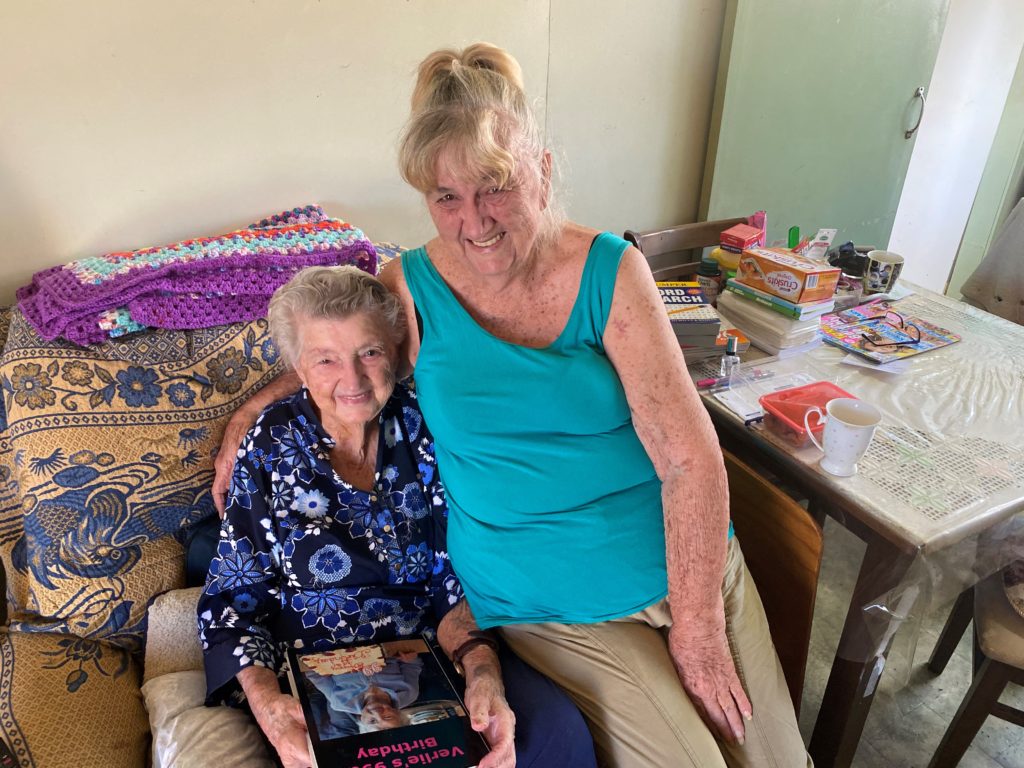
Verlie said when it came to meals, most mornings she would eat the same thing, there wasn’t the variety of choices available today, and nobody was weighing up the nutritional value and when it came to meals such as breakfast, it was always bread soaked in milk and eaten from a bowl as if it was cereal.
“We would have a sandwich for lunch, if mum had meat we would have that, and there was no need to worry about it being in a fridge, most meats in those days were preserved in salt and brown sugar and kept in a pot under the sink or in the corner,” she said.
“At night we would have a hot meal of meat, and mum always had a good garden, so we had plenty of vegetables, so a hot meal of vegetables and meat.”
Clothes were made from sugar and flour bags
During the tough times Verlie said her mother, Eva Frost, would make pies and sell them for sixpence to the men who worked close by.
She said this would allow them to purchase extra goods to help keep warm during the winter months.
“That’s 10 cents each today, but that was a lot of money back then, it was a different life in those days,” she said.
“The flour used to come in calico bags, and there was the word flour written over them in blue and mum used to bleach them.
“I don’t know how she bleached them, but I know she laid them out in the sun, and all our underclothes were then made with that.
“And we had hand-me down clothes from one-to-another, there was very little waste.”
Irene said when she was a little girl her grandmother would make clothing out of the sugar bags for her and her siblings.
“The sugar used to come in sugar bags, and I remember when I was little grandma used to wash them and boil them, spilt the seams and hem them with a bit of old material and they were our towels,” Irene said.
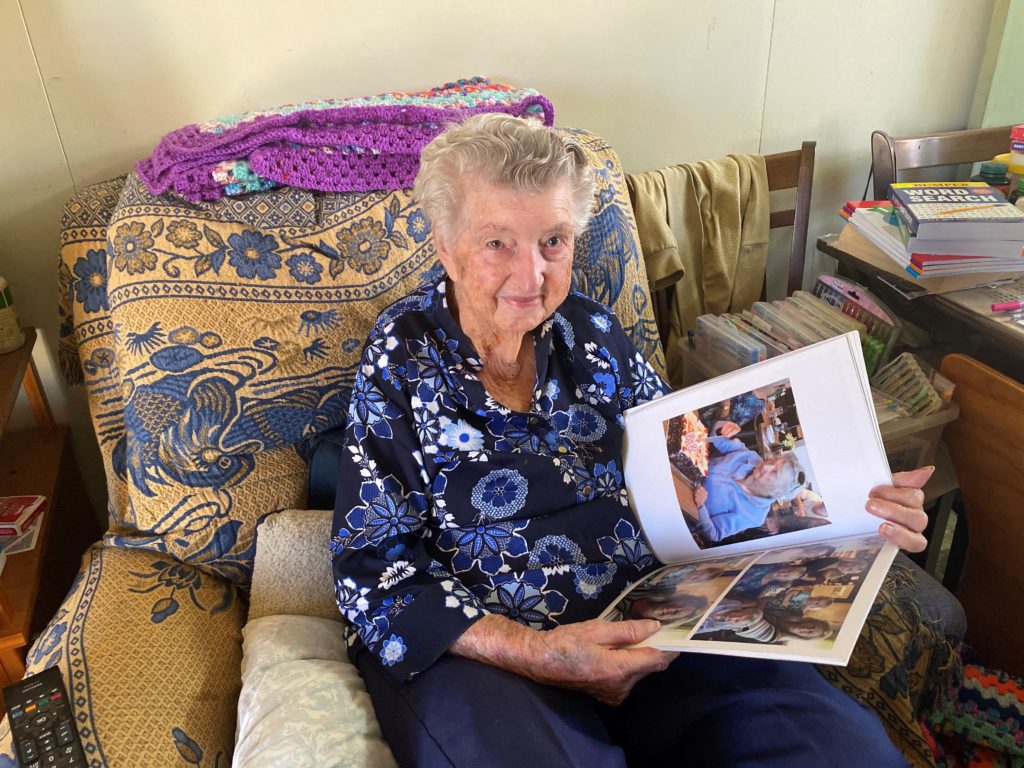
A time before every home had electricity
“Potato bags were split down the seams, boil them up to make them soft, then she would sew them together and fill them with newspaper or straw for the winter, that would be our doona.”
Verlie Foley said as hard as it is to believe today, but her family home didn’t have electricity until she was in her 40s during in the 1960s.
Before this time tidiness remained of utmost importance, and families would make sure every time anyone left the house all items of clothing were ironed; with a cast-iron iron that was heated on an open flame stove.
“Other people had it (electricity), but we couldn’t afford it, so we didn’t have it,” the 99-year-old said.
“We didn’t find life was too hard without it.”
Irene said there would often be two or three irons heating at any one time on the stove.
“You would always make sure clothes were ironed before leaving the house,” Irene said.
“You’d heat it up on the stove then have to rub it on paper to make sure you didn’t get soot on your clothes.”
Irene recalls her childhood, learning via correspondence, food was bought from a tiny corner store and clothes wear made from items such as potato sacks.
“We lived out in the bush miles away from anything,” Irene said.
“I have a great-grandson who recently rang up and asked me what it was like when I was his age.
“He asked where I got my food, as we didn’t have Woolworths, and I told him if we got hungry, we would go down to the beach and dig pipis, and put them in the fresh water to get all the sand out of them, and then boil them up and eat them.
“He couldn’t believe that we didn’t have refrigeration, we only had those square wire netting boxes and they had shelves in them, and you would hang them in a tree with a big dish of water and bags hanging over it to keep everything cold.”
Irene said as time progressed, they had ice boxes and a man would deliver ice to keep in the top on them to keep the food cold, after this they moved on to kerosene fridges, which was “pretty flash” for most Australia families.
“Back then there was fruit growing wild everywhere and my brother and I would go off with a two-gallon bucket with us, we would come home with a bucket-full of mulberries, or other fruit like black berries,” Irene said.
“Grandma used to preserve it and make jams and pies, she was absolutely marvellous.”
It was 83 years ago when Verlie started working, at 16 years of age, as a postmistress and later she travelled the east coast of Australia trawling for prawns; she was one of the first women to gain a fishing licence after much persistence.
“They said I couldn’t have it because I was a woman, so I just kept up at it until they gave me a licence.
“I was bought up on a farm and I have always worked, working a lot helps you live longer.”
Verlie will celebrate her 100th birthday on 13 July and she hopes by this time the panic buying, especially of toilet paper, would have stopped and life would return to normal.

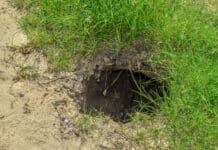
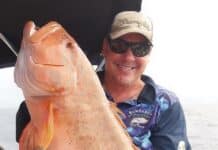





Good on you Verlie.
The good old days.
Great story Emma.